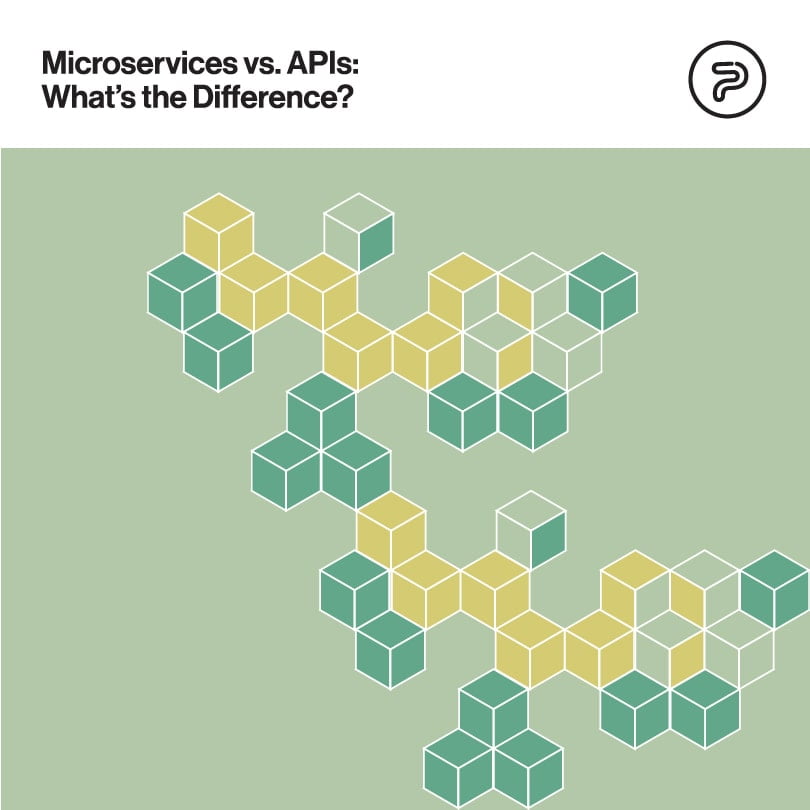It’s easy to get overwhelmed and confused in the digital realm. Even when you put aside jargon and different technologies and roles among experts, you’re still left with a bunch of expressions that can get you confused.
Chances are, there were a few titles and professions you’ve used interchangeably just to realize that there are some quite distinctive key differences between the two expressions.
That’s exactly the case with the terms “software engineer” and “software developer”.
So, let’s get the facts straight, and let’s settle which is which once and for all.
It Depends…
To start off rather confusing, let’s just say that there’s no official distinction between most roles in the digital realm, and oftentimes, companies use their own knowledge and experience to define their job or role description to fit their own needs. To be even more confusing, experts often state that roles can vary by region and depending on education. However, there are a few data sources and distinctive tasks and roles within jobs that can help us draw a conclusion, which will, if nothing else, will get you closer to the “truth”.
To kick things off, experts from the Computer Science Degree Hub state that the two roles have separate tasks within a digital/corporate setting.
According to them, software engineering means applying engineering principles to create software. Engineers participate in the software development cycle by connecting their clients’ particular needs with the most applicable technology solutions that will streamline their workflow. As such, software engineers develop processes to provide specific functions. In this sense, software engineering simply means using engineering concepts to develop the required software from clients.
On the other hand, the professionals who perform the roles of software developers, are the so-called “creative driving force” behind programs/software. They are responsible for the entire development process. They collaborate with the client to lay down the bases of the theoretical design. Then, they ask for the help of computer programmers to create the necessary code to run the software. The same programmers will also test and aim to fix every arising problem together with the developers.
Basically, software developers are responsible for both technical guidance and technical leadership on every level of the software development cycle.
Other sources also agree that there are some basic differences between the two roles:
According to Udacity, the two terms aren’t interchangeable. They say, a developer knows how to code and, in most cases, has the technical know-how to build and prepare meaningful products and software solutions. A software engineers follows a specific systematic process of understanding all requirements. They work with clients and stakeholders to develop a solution that fully suits their given needs. Developers usually work alone while engineers are usually team players.
Now that we kind of understand the basic differences, let’s see what these differences mean in practice.

Software Engineer Job Description
Technically speaking, a software engineer is a proficient developer who manages complex systems, not only being able to build fully functioning applications and also has the experience to build said apps in a way that’s easier to refactor and debug, thanks to self-documentation.
Most often than not, engineers will take on active leadership roles, but can also be consultants and individual contributors to various projects. As engineers, they should aim to provide analytical advice and pointers when it comes to identifying and implementing new IT tech in order to help the clients they’re working with reach their strategic objectives. As such, they must be also adequate in effectively managing resources, coordinating the tasks in the development workflow, and attentively supervising the project plans. They also often work together with IT development and operations staff during the software development cycle to ensure everything goes smoothly.
Engineers also understand the importance of creating a frontend and code that’s easy to handle and obvious to understand. As such, they know that the best piece of code you never have to write, especially not to rewrite.
They are expected to:
- Have the technical skills and experience to tend to a wide range of different projects.
- To use testing automation with the help of various testing tools.
- Build easily scalable deployment pipelines to create a digital atmosphere that enables the clients to continuously be able to deliver and to integrate new tech.
- They need to be good with pattern design in order to create fault-tolerant and resilient digital systems.
- They also know how to create and properly maintain usable IT architectures that handle large-scale data well.
- They are also expected to work effectively both as individuals and as team players.
- Experienced engineers must also have the skills to oversee complex system analysis, development, and design programs.
Their roles will usually involve:
- Researching, designing, developing, and testing their own software along with compiling and distributing the same software over a given network.
- Oftentimes, they’re also required to modify the existing software to resolve previously unseen defects and/or to adopt new hardware or technological principles to improve overall software performance.
- Analyze the needs of users and assess software requirements in balance with design feasibility and budget/time constraints and barriers.
- Consultation with clients regarding technological performance and design.
- Coordinating deployment and installation processes.
Challenges:
- High-software cost in safety-critical areas (nuclear power plants, space projects, etc).
- Constantly having to communicate between diverse software systems.
- Software systems are becoming increasingly complex, demanding an even broader knowledge spectrum from engineers.
- Increased market demand for such experts along with more pronounced responsibilities and employer expectations.
Best practices:
- They should strive for mutual benefit in their work: both for them and for their client.
- They should always focus on making system modifications that meet the highest quality standards.
- They should always work as reliable and responsible team players.
- They should have a high ethical and moral compass when it comes to software development and software maintenance. The same rules apply to their professional approach which should showcase a high level of integrity and independence.

Software Developer Job Description
Apart from writing the code itself, these professionals are also responsible for reviewing and assessing the current system and creating ideas that will improve the system and are often required to do so. Developers will work closely with analysts, the end-users, and the designers.
They are also to oversee everything regarding their code. Testing it by deploying it into controlled/real situations before they let it go live. By default, they should be near perfectionists to ensure no bug stays in their applications and that it always runs on optimum efficiency.
In most cases, the best software developers are creative, technical experts who know how to come up with innovative ideas to solve different user/customer problems. They should also have the experience to foresee certain errors before they should even arise.
They usually follow the development lifecycle methodology or delivery frameworks such as Kanban, Scrum, or XP.
Software developers should have:
- They must be familiarized with different programming languages to be able to work with different frameworks and programs, like C#, C++, Python, Java, etc.
- They must have the experience to work with/use open source tools (think GitHub).
- They should have excellent analytical skills in order to continually be able to assess customer needs and compare them to current software compatibilities.
- They should be detail-oriented to efficiently manage simultaneous projects that often have differing/overlapping development stages.
- Understand code logic even in unfamiliar programming languages.
- They should have great communication skills and strong attention to detail as small software errors may lead to major problems and losses down the road.
Generally speaking, developers must strive to continuously monitor every change they make. This includes paying attention to every detail when they resolve defects to ensure product consistency and impeccable quality. Apart from all this, they should also be able to constantly juggle between managing deadlines, schedules, and assigned work.
Challenges:
- They constantly need to cope with shifting requirements in an ever-changing digital landscape.
- They mustn’t misinterpret end-user requirements as their interpretation of it can make or break the software.
- Software systems can be rather difficult to maintain and/or to extend.
- They often have to work with different models that don’t fit together as they should.
- They often end up creating poorer-quality software due to budget restraints from the client.
- Late discovery of larger project flaws.
Best practices:
- Understanding the importance of writing useful code that will drive overall business.
- Keeping said code consistent and simple across the board (software and team).
- Setting daily coding goals to maintain a particular level of work efficiency.
- Testing, testing, and testing.
- Proper planning for each coding task.
- Setting realistic time estimates and budget estimates.
Software Developer vs Engineer
Now that you have a better understanding of what these two roles mean, let’s see them in a nutshell.
Before we start, you should note that both of these experts are skilled professionals with often overlapping duties. However, here are the basics aspects where they differ:
- Software developers build software while software engineers aim to apply software engineering principles to various software life cycle phases.
- Development is often a solitary activity while engineering is mostly a team effort.
- Developers “develop” apps with tools that are already available tools while engineers are often the ones who create the necessary tools.
- Developers are those who write programs while engineers are those who work with the other components of a given hardware system.
- Engineers usually cater to issues that happen on a much larger scale when compared to developers, who usually don’t need to worry about the “bigger picture”.
Putting it All Together
Lastly, here’s one more summarization that will help you differentiate between a software developer and a software engineer:
- A developer is an expert who executes. They often focus on a single area, without having to worry about the big digital picture. They focus on developing and writing code that caters to a particular software development cycle or development cycle.
- On the other hand, you have your software engineers who design, plan, and apply the principles of software engineering to the development itself. Engineers tend to focus on the “big picture” and are usually talented in several areas. They can also work as developers, but they are more interested in system architecture than in code.
All in all, the main difference between the two is that one focuses on creating functional programs while the other oversees engineering.





